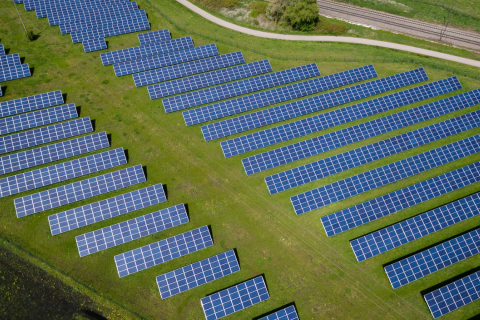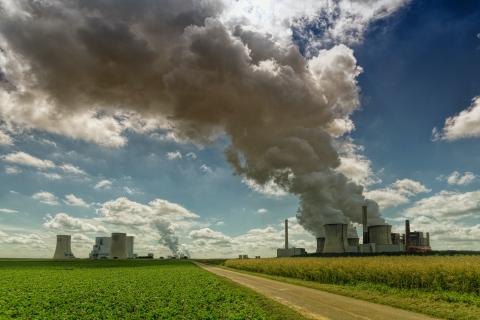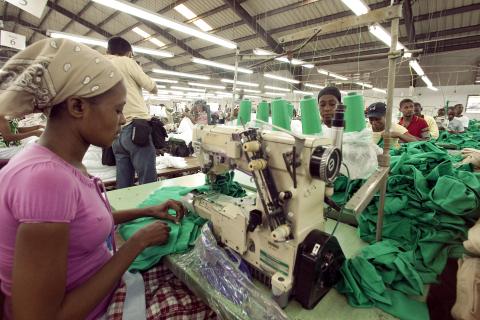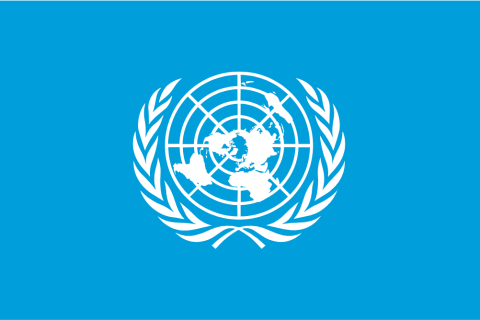UN DESA Policy Brief No. 171: Leveraging Critical Energy Transition Minerals: policy pathways for sustainable development
Developing countries with extensive critical energy transition mineral reserves have the potential to harness these resources for economic growth and sustainable development. However, doing so involves significant economic, environmental and social risks. Strong governance, strategic national policies and effective international cooperation are essential to maximize sustainable development benefits and avoid the so-called resource curse.
UN DESA Policy Brief No. 155: Accelerating middle-income countries’ progress towards sustainable development
Many MICs require international support to address current and long-term challenges. Eligibility criteria that rely only on income per capita limit available support – including access to concessional finance – without accounting for MICs’ multidimensional development needs.
UN DESA Policy Brief Special Issue: Financing the Sustainable Development Goals through mission-oriented development banks
There is an urgent need for channeling long-term risk-tolerant finance towards achieving the Sustainable Development Goals. The paper argues that National Development Banks (NDBs) and Multilateral Development Banks (MDBs) can play a crucial role in mobilizing the needed capital.
UN DESA Policy Brief No. 141: A just green transition: concepts and practice so far
A globally just transition requires international support for developing countries that takes into account their’ realities, capacities, and priorities. Greening measures and strategies shouldn’t push people in other countries behind.
UN DESA Policy Brief No. 129: The monetary policy response to COVID-19: the role of asset purchase programmes
Central banks have relied heavily on unconventional monetary policy tools, especially large-scale asset purchases, to respond to the pandemic. These programmes have helped to stabilize financial markets and kickstart economic recovery. But the central bank asset purchases have also contributed to an underpricing of risk and sharp increases in asset prices.
UN DESA Policy Brief No. 125: Improving compatibility of approaches to identify, verify and align investments to sustainability goals
Regulators and other market participants have introduced a variety of mandatory and voluntary approaches to help investors align investments with sustainability goals.
UN/DESA Policy Brief #120: Investing in the future of rural non-farm economies
Development strategies that focus solely on urban development and leave rural communities behind are not adequate to overcome the development challenges we face.
UN/DESA Policy Brief #99: Why does corporate sustainability reporting matter to rebuilding better?
Business and financials models must be rethought to accelerate and strengthen business’ contributions to sustainable development
UN/DESA Policy Brief #71: COVID-19 pandemic deals a huge blow to the manufacturing exports from LDCs
The COVID-19 pandemic poses a significant economic challenge to LDCs that rely heavily on exporting manufactured goods, particularly clothing and apparel, amid global demand and supply-side shocks.
UN/DESA Policy Brief #57: Navigating Financial Risks Through Macroprudential Policies: Recent Experiences of Emerging Economies
A decade has passed since the initial onset of the global financial crisis. Following a protracted period of sub-par growth, the global economy has strengthened as the effects of cyclical headwinds and crisis-related legacies dissipate.
UN/DESA Policy Brief #48: Adaptation to climate change requires transformative policies
Climate change has a differential impact on people and communities. The people at greatest risk are the poor, the vulnerable and the marginalized that, in most cases, have been excluded from socioeconomic progress. Differences in wealth; unequal opportunities to access quality health services, education and employment; and inequality with respect to voice and political representation are the underpinnings of continued exposure and vulnerability of large population groups to climate hazards. Public policies have an important role to play in strengthening the capacity of people to adapt, particularly in those areas where the private sector is unlikely to invest.
 Welcome to the United Nations
Welcome to the United Nations









